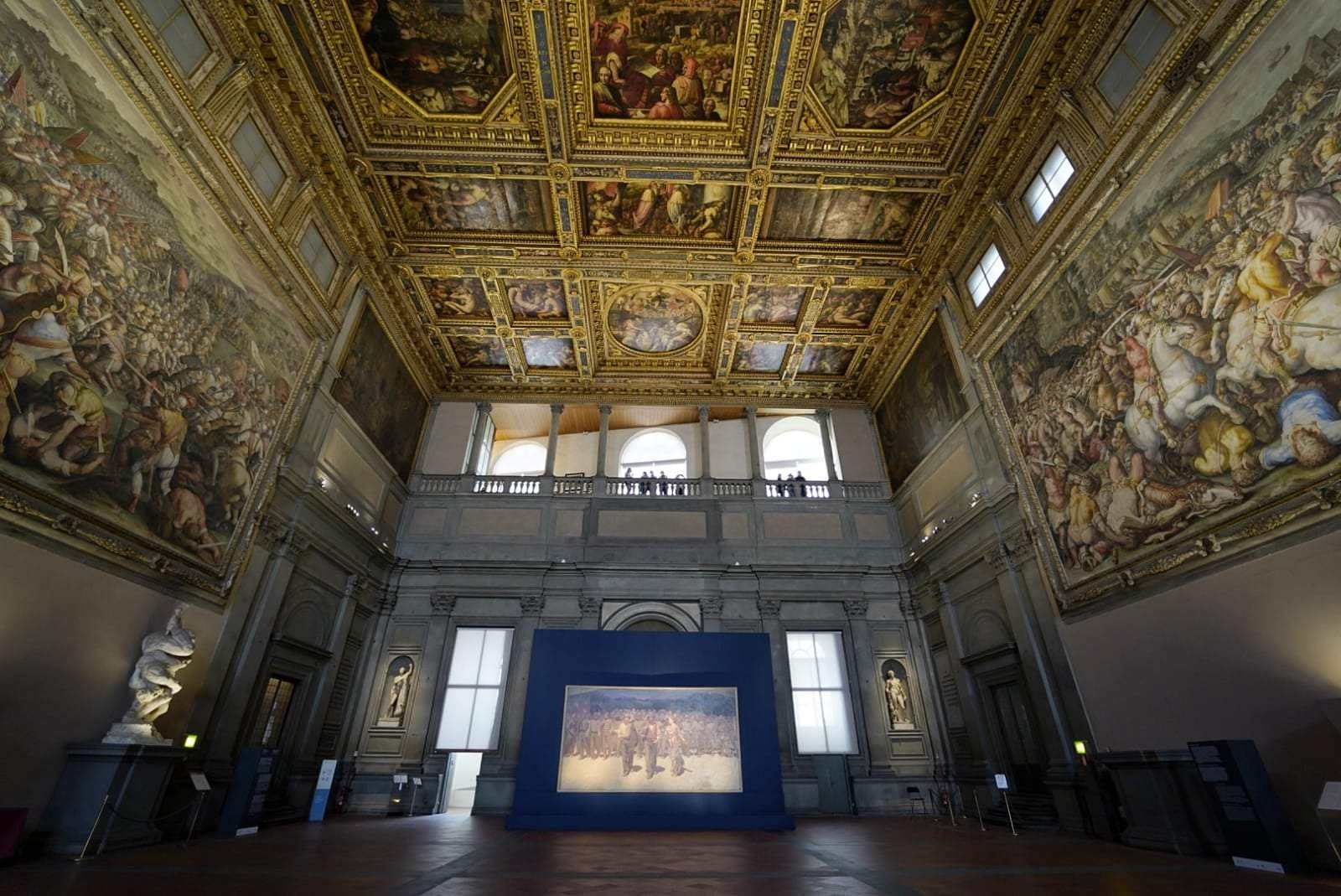Cultural workers are protesting the display of Giuseppe Pellizza da Volpedo ’s Fourth Estate in Florence: the work arrived last April 30 in Palazzo Vecchio’s Salone dei Cinquecento after leaving the Museo del Novecento in Milan, its home, for an exhibition that opened on May 1 and will run until June 30. The exhibition, however, has been accompanied by controversy (our magazine, with an article by editor Federico Giannini, was one of the first voices to rise against the operation), this because in the opinion of many the exhibition would have no scientific character, and in addition, the quid pro quo that Florence would have to offer Milan in exchange for the loan has not yet been made known.
The work, which is large and therefore very delicate, a reason why it moves little from Milan (the last time was in 2008 for an exhibition on 19th-century art at the Scuderie del Quirinale), was also the backdrop for a debate with the mayors of Milan and Florence, Giuseppe Sala and Dario Nardella, and with Labor Minister Andrea Orlando, held on the afternoon of April 30 just in front of the work in the Salone dei Cinquecento. From the very beginning, however, the workers in the sector objected to the project.
“Not only is the work not involved in any scientific or cultural project, creating a dangerous precedent in the country’s internal political use of artwork loans,” explains Federica Pasini, an art historian and activist with the Mi Riconosci association, who recalls the precedent of 1989, when Bettino Craxi asked for the Quarto Stato as the backdrop for the PSI congress and received a refusal, “but it is displayed in a place that aims to instrumentalize its message precisely at a time when the two cities involved are grappling with important labor-related disputes.”
The Mi Riconosci activists point out, in fact, that in Florence there have been two strikes since the beginning of the year in museums, archives and libraries, while in Milan, 200 workers in museums and civic libraries have been in a state of agitation for a few weeks in view of the change of contract. “Mayor Sala in front of the ’Fourth Estate’ spoke of the need to raise wages,” Pasini continued, “but those workers, who also get as much as 5 euros gross an hour, have so far been given no guarantee about their future: yet this is a municipal contract.”
“It’s hard to watch this umpteenth commercial, especially if those who are watching are outsourced workers in the municipal cultural sector,” adds Alessio Nencioni, a worker in Florence’s municipal libraries and an activist of the BiblioPrecari group. “People who live on their skin, every day, wicked choices made within the very Florentine administration that is not moving a finger against the chronic precariousness that it itself has generated in the services it considers and flaunts as essential.”
The activists call on the two administrations to “stop shielding themselves from an extraordinary work, moreover purchased with great popular participation, and to really address labor issues, starting with municipal contracts.”
Meanwhile, the first day of the exhibition saw many visits: in fact, the City of Florence reports that 2198 visitors admired the painting in the Salone dei Cinquecento. In detail, of these 1146 were residents who entered for free thanks to Metropolitan Sunday. The overall number is up sharply from May 1, 2019, when there were 1705 admissions (+29%, or 439 more visitors: so much therefore would have moved the Fourth Estate, which of course on May 1, 2019 was in its museum in Milan). The following years of course are not comparable because in 2020 the museum was closed due to lockdown and in 2021 admissions were reduced due to quota.
Pictured is the Fourth Estate at the bottom of the Salone dei Cinquecento
 |
| Pellizza's Fourth Estate in Florence, cultural workers protest |
Warning: the translation into English of the original Italian article was created using automatic tools. We undertake to review all articles, but we do not guarantee the total absence of inaccuracies in the translation due to the program. You can find the original by clicking on the ITA button. If you find any mistake,please contact us.